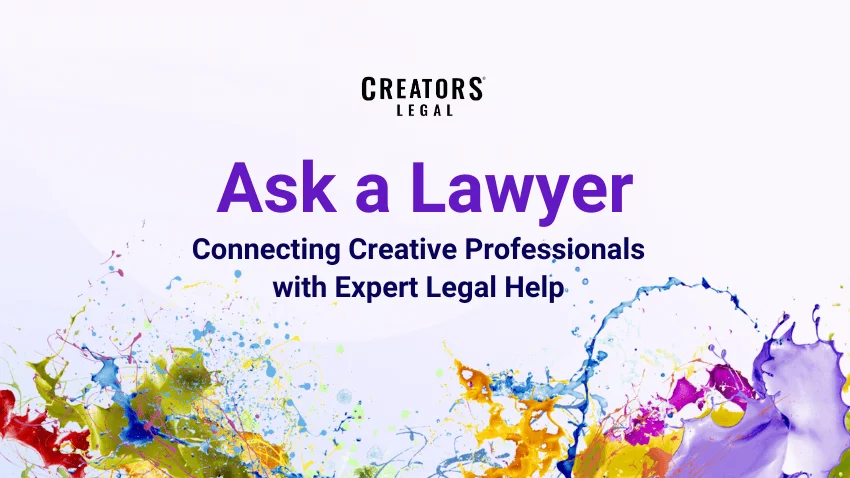In the dynamic world of content creation, collaboration often holds the key to unlocking innovative and captivating projects. As a content creator, you’re aware of the potential of partnerships, but ensuring these collaborations are legally sound can be a challenge. In this guide, we’ll dive deep into the realm of content creator contracts, creative agreements, and the intriguing question: can you sue for breach of contract? Equip yourself with valuable insights and practical tips for navigating these legal waters without the need for a lawyer.
What Are Content Creator Contracts?
Content creator contracts are the essential backbone of successful collaborations. Think of them as detailed roadmaps that guide the journey of content creation partnerships. These agreements lay out the terms, expectations, and rights of all parties involved, ensuring that the project aligns with the vision while establishing clear responsibilities and outcomes.
When engaging in content creation, whether it’s for a joint YouTube video or a co-authored blog post, a content creator contract is your shield. Here’s how to approach it:
- Project Overview: Clearly define the project’s nature and objectives. Whether it’s a series of videos, a podcast, or an eBook, set the context.
- Roles and Responsibilities: Outline the roles of each party involved. Who will handle scriptwriting, editing, graphics, or promotion? Defining these roles prevents confusion.
- Content Ownership: Address who owns what. This includes intellectual property rights, usage rights, and the ability to modify or distribute the content.
- Revenue Sharing: If the collaboration involves financial gains, specify how revenue will be shared. This could be through ad revenue, sponsorship, or direct sales.
- Credit and Attribution: Clearly state how each party will be credited in the content and promotional materials. Proper credit is not just courteous but essential.
Tip 1: Open Communication is Key
Open communication sets the stage for a successful collaboration even before the contract is drafted. Engage in thorough discussions with your collaborators about your goals, expectations, and each party’s roles. This open dialogue will help you identify potential areas of concern and ensure everyone is on the same page from the outset.
Tip 2: Clearly Define Roles and Responsibilities
The heart of any content creation project lies in roles and responsibilities. Clearly define roles and responsibilities for each party involved. Who will handle content creation, editing, graphics, marketing, and distribution? This explicit clarity leaves no room for ambiguity and paves the way for a harmonious collaboration.
The Curious Case of Breach of Contract
Can You Sue for Breach of Contract?
The question that often arises: can you sue for breach of contract? The answer is an unequivocal yes! When one party fails to fulfill their agreed-upon responsibilities, it constitutes a breach of contract. However, the best approach is prevention—creating comprehensive contracts that outline roles and expectations can substantially reduce the chances of facing such situations.
Tip 3: Address the “What Ifs”
Navigating the potential pitfalls of content creator contracts involves addressing the “what ifs.” What if one party doesn’t meet deadlines? What if creative differences arise? Including clauses that address potential scenarios provides a roadmap for how these situations will be handled, reducing the risk of disputes and misunderstandings down the road.
Unveiling Creative Contracts
Creative contracts extend beyond artists; they encompass writers, designers, and a multitude of creatives. These agreements serve as guardians of your work, dictating how it’s used and ensuring your rights remain intact.
Tip 4: Specify Licensing Terms
When crafting creative contracts, pay meticulous attention to licensing terms. Define the scope and duration of how your work will be used. Is it for exclusive use, limited time, or specific platforms? These details provide clarity on how your creation will be showcased.
Tip 5: Preserve Your Rights
Your creative work is your intellectual property. Ensure your contract preserves the rights you wish to retain. This could include rights to display your work in your portfolio or the ability to grant licenses to other parties. By specifying these aspects, you maintain control over your creative output.
Embrace the Power of Written Agreements
While verbal agreements can be binding, written agreements provide an undeniable level of clarity and security. A written contract serves as a tangible reference point for all parties involved, eliminating confusion and potential disagreements.
Tip 6: Customize Your Agreements
Templates can be immensely helpful, but don’t fall into the trap of a one-size-fits-all approach. Customize your agreements to align with the specifics of your project, the roles of each party, and the expectations you’ve set. Tailoring your contract ensures that it accurately represents your collaboration.
Tip 7: Prioritize Clarity Over Legalese
The aim of content creator contracts is to achieve clarity, not to bewilder your collaborators with legal jargon. Prioritize clarity over legalese by using straightforward language that everyone can comprehend without the need for a legal dictionary.
Tip 8: Consider Collaboration Dynamics
Content creator contracts should reflect the collaborative spirit that drives creative projects. Balance the legal terminology with a respectful and cooperative tone that fosters a sense of partnership and mutual respect.
Tip 9: Seek Inspiration, Not Duplication
While sample contracts can provide valuable insights, view them as a source of inspiration rather than a dictatorial guide. Use them as a starting point to craft an agreement that mirrors the unique dynamics of your collaboration, incorporating the specifics that define your partnership.
Content creator contracts and breach of contract may seem like daunting territories, but armed with knowledge, you’re well-equipped to navigate them successfully. By understanding the essence of these agreements, applying thoughtful tips, and embracing open communication, you’re taking charge of your collaborations while safeguarding your creative work. While intricate arrangements may call for professional legal advice, these insights empower you to create agreements that protect your creative endeavors and foster thriving partnerships within the vibrant landscape of content creation. Your creativity is your greatest asset—ensure it’s nurtured, respected, and legally safeguarded throughout your creative journey.
Disclaimer: This blog post is provided for informational purposes only and should not be considered legal advice






